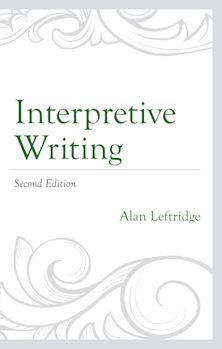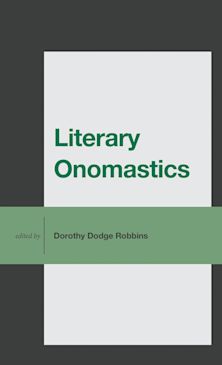- Home
- ACADEMIC
- Linguistics
- Linguistics - Other
- Foundations of Old Prussian
Foundations of Old Prussian
Philology and Linguistics
Foundations of Old Prussian
Philology and Linguistics
This product is usually dispatched within 1 week
- Delivery and returns info
-
Free US delivery on orders $35 or over
You must sign in to add this item to your wishlist. Please sign in or create an account
Description
The Old Prussian language has always puzzled linguists. While other Baltic languages, such as Lithuanian and Latvian, have remained in use to the present day, Old Prussian was extinguished at the beginning of eighteenth century, and the extant Old Prussian linguistic corpus is quite limited in scope. Drawing on two bilingual vocabularies and three Lutheran Catechisms (as well as onomastic evidence and several other minor texts), this work critically explores the linguistic and historiographical contours of Old Prussian.
Table of Contents
Chapter 2 Prelude to Prussian Linguistics (16th–20th Century)
Chapter 3 Old Prussian Corpus
Chapter 4 An Outline of Old Prussian Grammar
Chapter 5 The Old Prussian Lexicon
Chapter 6 Old Prussian “Minor” Texts
Chapter 7 Old Prussian Texts: The Vocabularies
Chapter 8 Old Prussian Texts: The Traces
Chapter 9 Old Prussian Texts: The Small Catechisms
Chapter 10 Old Prussian Texts: The Enchiridion
Chapter 11 Old Prussian Onomastics
Chapter 12 Examples of Old Prussian Texts
Product details
| Published | Jun 15 2023 |
|---|---|
| Format | Hardback |
| Edition | 1st |
| Extent | 420 |
| ISBN | 9781666901900 |
| Imprint | Lexington Books |
| Illustrations | 51 b/w illustrations; 33 tables; 10 textboxes; |
| Dimensions | 9 x 6 inches |
| Series | Studies in Slavic, Baltic, and Eastern European Languages and Cultures |
| Publisher | Bloomsbury Publishing |
About the contributors
Reviews
-
Foundations of Old Prussian: Philology and Linguistics is the most comprehensive reference work ever published on Old Prussian, the only Western Baltic language known to us by written texts. Closely related to Lithuanian and Latvian, Old Prussian was spoken until the 17th century in East Prussia, around the city of Königsberg, and survives through a small number of texts. This book provides authoritative treatment of the language and its cultural environment by leading Balticist Pietro U. Dini, throwing light on its main linguistic structures and outlining the specific features of its written documentation.
Daniel Petit, Ecole Normale Supérieure & Ecole Pratique des Hautes Etudes; author of Untersuchungen zu den baltischen Sprachen
-
Building on the achievements of earlier research, Foundations of Old Prussian: Philology and Linguistics offers an up-to-date and comprehensive overview of Old Prussian, the most enigmatic of the Baltic languages. The novelty of the author’s approach consists in a masterly combination of strictly philological and grammatical information with extra-linguistic (historical and cultural) background.
Wojciech Smoczynski, Jagiellonian University
-
In the local area of Central-Eastern Europe persists an ecolinguistic problem related to the gradual disappearance of local languages. In the Late Middle Ages and Early Modern Period, the Curonian, Prussian and Yatvingian languages became extinct. The fate of the Western Baltic languages is currently faced by the Belarusian language, which is now in a state of 16th century Prussian. About the disappearance of the “different” Prussian language (Vetus Prutenica, toto genere ab aliis Europæis diver?a) was European society alarmed by J.A. Komenský in 1648. Pietro U. Dini's monographic work provides a factual and uniquely detailed introduction to this extinct Baltic language—the Prussian written heritage of the 13th-16th centuries—and through it, to the tragic linguistic transformation of the region.
Ilja Lemeškin, Charles University; author of Lituanica aliter
-
Unparalleled in scope, the strongest feature of Foundations of Old Prussian: Philology and Linguistics is the balance between linguistic data and textual-cultural information on this extinct Baltic language and nation. I highly recommend P. U. Dini’s book to specialists and students of Baltic, Slavic, Indo-European, and textual studies.
Bonifacas Stundžia, Vilnius University

ONLINE RESOURCES
Bloomsbury Collections
This book is available on Bloomsbury Collections where your library has access.

































